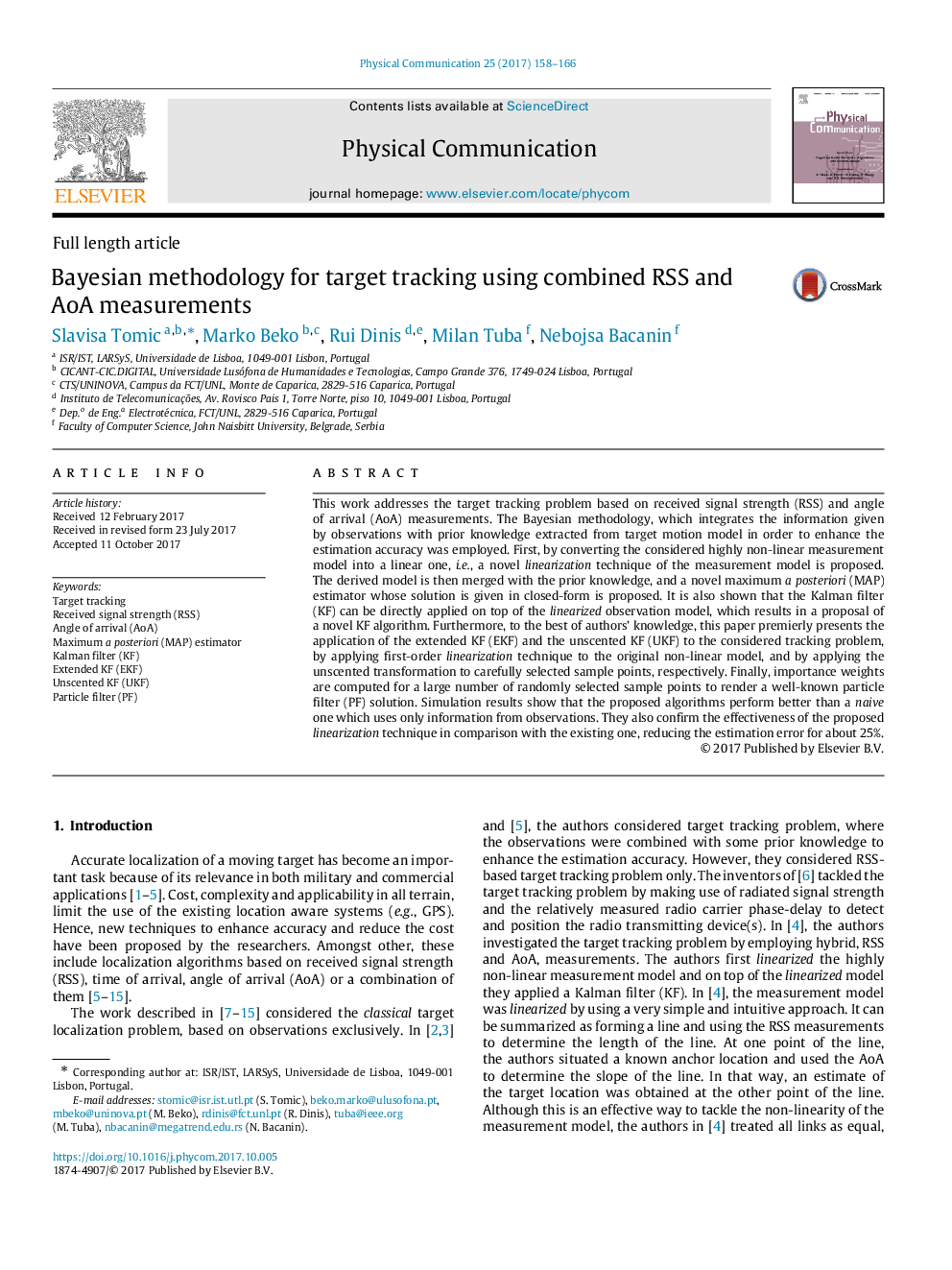| Article ID | Journal | Published Year | Pages | File Type |
|---|---|---|---|---|
| 6889352 | Physical Communication | 2017 | 9 Pages |
Abstract
This work addresses the target tracking problem based on received signal strength (RSS) and angle of arrival (AoA) measurements. The Bayesian methodology, which integrates the information given by observations with prior knowledge extracted from target motion model in order to enhance the estimation accuracy was employed. First, by converting the considered highly non-linear measurement model into a linear one, i.e., a novel linearization technique of the measurement model is proposed. The derived model is then merged with the prior knowledge, and a novel maximum a posteriori (MAP) estimator whose solution is given in closed-form is proposed. It is also shown that the Kalman filter (KF) can be directly applied on top of the linearized observation model, which results in a proposal of a novel KF algorithm. Furthermore, to the best of authors' knowledge, this paper premierly presents the application of the extended KF (EKF) and the unscented KF (UKF) to the considered tracking problem, by applying first-order linearization technique to the original non-linear model, and by applying the unscented transformation to carefully selected sample points, respectively. Finally, importance weights are computed for a large number of randomly selected sample points to render a well-known particle filter (PF) solution. Simulation results show that the proposed algorithms perform better than a naive one which uses only information from observations. They also confirm the effectiveness of the proposed linearization technique in comparison with the existing one, reducing the estimation error for about 25%.
Keywords
Related Topics
Physical Sciences and Engineering
Computer Science
Computer Networks and Communications
Authors
Slavisa Tomic, Marko Beko, Rui Dinis, Milan Tuba, Nebojsa Bacanin,
